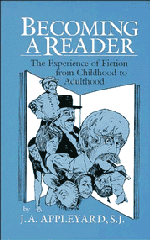Book contents
4 - College and Beyond: The Reader as Interpreter
Published online by Cambridge University Press: 15 September 2009
Summary
When Susan Sontag wrote, “None of us can ever retrieve that innocence before all theory when art knew no need to justify itself, when one did not ask of a work of art what it said because one knew (or thought one knew) what it did” (1966, 4–5), she conveyed both the truth about a particular moment in our development as readers and the nostalgic regret that we may feel about it in looking back. All experience of art is a matter of interpreting, however, as Sontag herself concedes, quoting Nietzsche: “There are no facts, only interpretations” (1966, 70). But there is a difference between the innocence of interpreting without knowing that you are doing so and the self-consciousness of interpreting after it has become a problem. The mode of reading that we now want to consider is the kind of response that does not take the story for granted as a direct experience of an imagined world, but sees it as a text that someone has made, as something problematic and therefore demanding interpretation.
It seems unlikely that anyone will come to this attitude without considerable schooling. Indeed, many of the crucial experiences necessary to produce the changes in attitude involved in this mode of reading stories seem to be connected with the study of literature on the college or university level.
Information
- Type
- Chapter
- Information
- Becoming a ReaderThe Experience of Fiction from Childhood to Adulthood, pp. 121 - 154Publisher: Cambridge University PressPrint publication year: 1991
